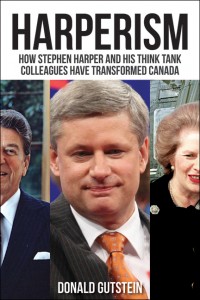Harperism: How Stephen Harper and his think tank colleagues have transformed Canada

Margaret Thatcher transformed British political life forever. So did Ronald Reagan in the United States. Now Canada has experienced a similar, dramatic shift to a new kind of politics, which author Donald Gutstein terms Harperism. Among its key tenets:
- A weakened labour movement – and preferably the disappearance of unions – will contribute to Canada’s economic prosperity
- Cutting back government scientific research and data collection will improve public policy-making
The success of Harperism is no accident. Donald Gutstein documents the links between the politicians, think tanks, journalists, academics, and researchers who nurture and promote each other’s neo-liberal ideas.
Details
Published: September 12, 2014
Publisher: Lorimer
- ISBN - 10:145940663X
- ISBN - 13:9781459406636